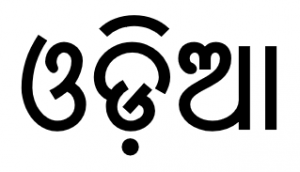Language/Odia/Grammar/Plurals
Hi Odia learners!😊
Learning Odia Grammar can be a challenging task, but it is also an incredibly rewarding one. In this lesson, we will focus on the formation of plurals in Odia.
Formation of Plurals
In Odia, the formation of plurals is quite simple. Generally, the plural form of a noun is formed by adding the suffix -a to the singular form. For example:
- bāra (boy) → bārā (boys)
- mānusha (man) → mānushā (men)
- ghara (house) → gharā (houses)
However, there are some exceptions to this rule. For example, the plural of pāna (leaf) is pānī and the plural of bāta (word) is bātī.
Pluralization of Nouns Ending in Vowels
When a noun ends in a vowel, the plural is formed by adding the suffix -i instead of -a. For example:
- bāla (child) → bālī (children)
- kāma (desire) → kāmī (desires)
- dhana (wealth) → dhanī (wealths)
Pluralization of Nouns Ending in Consonants
When a noun ends in a consonant, the plural is formed by adding the suffix -ā instead of -a. For example:
- bāhuda (friend) → bāhudā (friends)
- dina (day) → dinā (days)
- jana (person) → janā (people)
Pluralization of Nouns Ending in -u
When a noun ends in -u, the plural is formed by adding the suffix -ū instead of -a. For example:
- bāhu (arm) → bāhū (arms)
- guru (teacher) → gurū (teachers)
- pasu (animal) → pasū (animals)
Pluralization of Nouns Ending in -ā
When a noun ends in -ā, the plural is formed by adding the suffix -āni instead of -a. For example:
- bāhā (brother) → bāhāni (brothers)
- dāhā (sister) → dāhāni (sisters)
- māhā (month) → māhāni (months)
Pluralization of Nouns Ending in -ī
When a noun ends in -ī, the plural is formed by adding the suffix -inī instead of -a. For example:
- bālī (child) → bālinī (children)
- kāmī (desire) → kāminī (desires)
- dhanī (wealth) → dhaninī (wealths)
Pluralization of Nouns Ending in -ē
When a noun ends in -ē, the plural is formed by adding the suffix -ēni instead of -a. For example:
- bāhē (side) → bāhēni (sides)
- dēhē (body) → dēhēni (bodies)
- mēhē (face) → mēhēni (faces)
Pluralization of Nouns Ending in -ō
When a noun ends in -ō, the plural is formed by adding the suffix -ōni instead of -a. For example:
- bāhō (arm) → bāhōni (arms)
- guru (teacher) → gurūni (teachers)
- pasu (animal) → pasūni (animals)
Pluralization of Nouns Ending in -au
When a noun ends in -au, the plural is formed by adding the suffix -awā instead of -a. For example:
- bāhau (friend) → bāhawā (friends)
- dina (day) → dinawā (days)
- jana (person) → janawā (people)
Pluralization of Nouns Ending in -ou
When a noun ends in -ou, the plural is formed by adding the suffix -owā instead of -a. For example:
- bāhou (arm) → bāhowā (arms)
- gurou (teacher) → gurowā (teachers)
- pasou (animal) → pasowā (animals)
Conclusion
As you can see, the formation of plurals in Odia is quite straightforward. With a bit of practice, you will soon be able to form plurals with ease. To improve your Odia Grammar, you can also use the Polyglot Club website. Find native speakers and ask them any questions!
If you have any questions, please ask them in the comments section below.
Feel free to edit this wiki page if you think it can be improved. 😎

